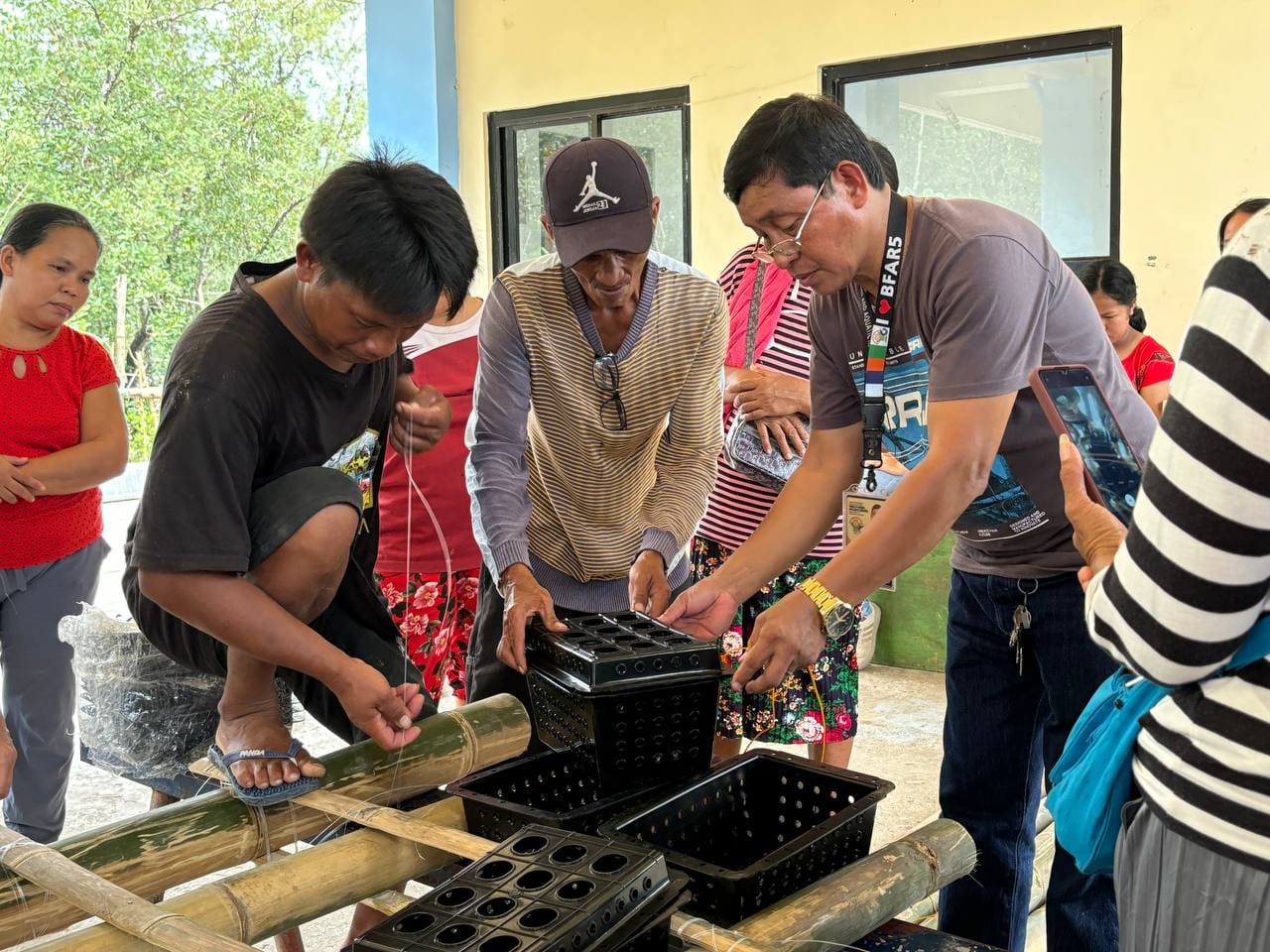
| Participants from Sustainable Livelihood Program Associations (SLPAs) on Catanduanes Island actively engage in hands-on training for mangrove crab fattening, part of a capacity-building initiative led by DSWD Bicol, CDA, DTI, and BFAR. This training aims to equip them with essential skills for sustainable micro-enterprise development under the Zero Hunger Program. |
CATANDUANES – DSWD Bicol, in collaboration with the Cooperative Development Authority (CDA), the Department of Trade and Industry (DTI), and the Bureau of Fisheries and Aquatic Resources (BFAR), has conducted a series of capacity-building trainings for five Sustainable Livelihood Program Associations (SLPAs) on Catanduanes Island.
A total of 30 participants from the municipalities of Bagamanoc, Panganiban, and Viga attended the sessions. They were equipped with essential knowledge and skills to succeed in their chosen micro-enterprise: mangrove crab fattening.
Prior to these specialized trainings, each SLPA received Seed Capital Funds ranging from PHP 75,000 to PHP 375,000, totaling PHP 1.17 million, after participating in Pre-Registration Seminars, Entrepreneurial Mindsetting workshops, and Financial Literacy training.
The training sessions aimed to provide participants with a thorough understanding of cooperative concepts and principles, effective financial management, and the technical expertise required for mangrove crab fattening, with an emphasis on good aquaculture practices. Hands-on training was also provided on the preparation of mangrove crab cages.
This initiative is part of the Zero Hunger Program Convergence Budgeting, a government effort to pool resources from various national agencies to build the capacity of community-based organizations. The mangrove crab fattening project was identified as a viable micro-enterprise for the three municipalities, offering a sustainable livelihood opportunity for the participants.
With these newly acquired skills, the SLPAs are expected to enhance their livelihood activities, contributing to the overall goals of food security and economic stability in their communities.#
